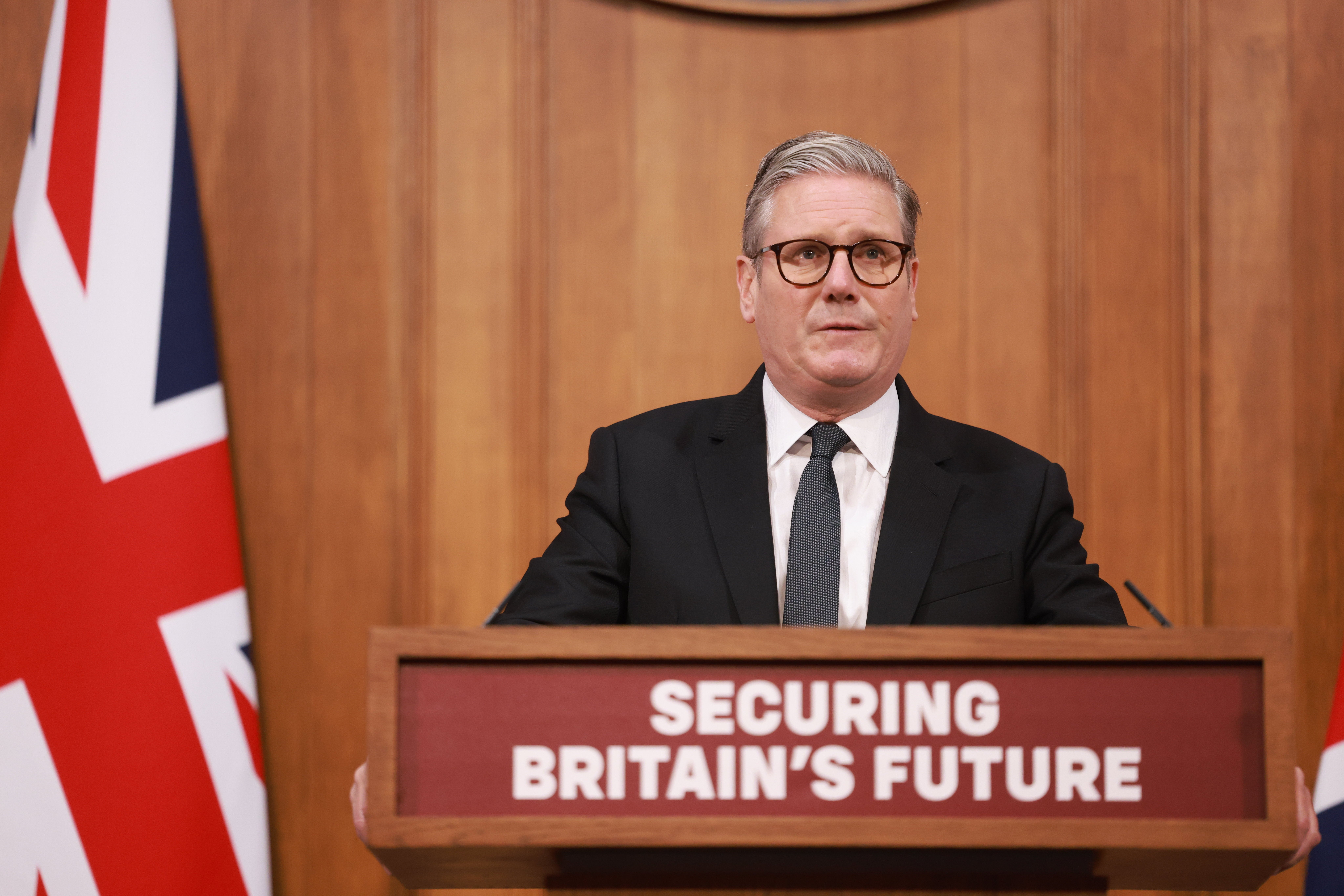Secondary school pupils will be taught new skills to make sure they can get AI-powered jobs in the future, the prime minister has announced.
It comes as research commissioned by the Department for Science, Innovation and Technology (DSIT) showed that, by 2035, AI will play a part in the roles and responsibilities of around 10 million workers.
One million students will be given access to learning resources to start equipping them for “the tech careers of the future” as part of the government’s £187m “TechFirst” scheme, Downing Street said on Monday.
Meanwhile, speaking at London Tech week, the prime minister announced plans to invest an extra £1bn into scaling up UK computer power “by a factor of twenty” to ensure Britain is an “AI maker not an AI taker”.

“That's a huge increase in the size and power of Britain's AI engine, which means, of course, in this global race, we can be an AI maker and not an AI taker”, Sir Keir said.
He also argued that “AI and tech makes us more human”, urging the public to “push past” concerns over artificial intelligence taking jobs.
“Some people out there are skeptical. They do worry about AI taking their job, and I know for an audience like this, this is a debate that's been had, perhaps many times - and we need to push past it”, Sir Keir said.
The intervention came as former foreign secretary Lord Hague endorsed a major new paper by the thinktank Policy Exchange calling on the government to rewire its institutions for the coming age of superintelligent technologies.
The paper warned: “Artificial Intelligence will define the twenty-first century more than any other force – economically, geopolitically, and philosophically ... we are entering not merely an era of innovation but the fastest, most transformative period in human history.
“Governments that once hesitated are now racing to deploy these technologies across defence, health, education, and administration."
Speaking on Monday, the prime minister also announced the rolling out of a new AI tool - ‘Extract’ - which can scan hundreds of planning applications in seconds, which the government said would “turbocharge” plans to build 1.5m homes.
Explaining the technology, Sir Keir said: “It takes old, handwritten planning documents and puts them into digital form in seconds. So jobs that would otherwise have taken hours and hours, done in seconds. One hundred planning records a day... the average up until now is five.”
It comes just one day after technology secretary Peter Kyle admitted that AI “does lie”, acknowledging that the technology was “not flawless”.
The TechFirst programme will be split into four strands, with TechYouth – the £24m “flagship” arm – aimed at giving students across every secondary school in the UK the chance to gain new AI skills over three years.
Sir Keir Starmer is also launching a new government partnership with industry to train 7.5 million UK workers in essential skills to use AI by 2030.
Tech giants including Google, Microsoft, IBM, Nvidia, BT and Amazon have signed up to make “high-quality” training materials widely available to workers free of charge over the next five years, No 10 said.
Sir Keir said the government is “putting the power of AI into the hands of the next generation – so they can shape the future, not be shaped by it”.
He added: “This training programme will unlock opportunity in every classroom – and lays the foundations for a new era of growth.
“Too many children from working families like the one I grew up in are written off. I am determined to end that.”
Sir Keir hosted a private reception at Chequers on Sunday with leading technology bosses and investors, including former Google chief executive Eric Schmidt, Faculty AI co-founder Angie Ma, Google DeepMind chief Demis Hassabis and Scale boss Alex Wang.
On Tuesday, he will invite industry figures to Downing Street, including 16-year-old AI entrepreneur Toby Brown, who recently secured $1m in Silicon Valley funding for his startup, Beem.
Asked about the risk of AI producing unreliable information, Mr Kyle said “people need to understand that AI is not flawless, and that AI does lie because it’s based on human characteristics”.
“Now it is getting more precise as we move forward. It’s getting more powerful as we move forward,” he told Sky News’s Sunday Morning With Trevor Phillips.
“But as with every single technology that comes into society, you can only safely use it and wisely use it by understanding how it works.”
He added: “We are going to legislate for AI going forward and we’re going to balance it with the same legislation that we’ll bring in to modernise the copyright legislation as well.”
Nato chief says UK’s defence spending plans not at odds with 5% goal
‘Hope is not a strategy’: Why Nato is calling for Cold War levels of defence spending
Reeves’ winter fuel U-turn shows Labour is running scared of Farage
Winter fuel payments and two-child benefit: All Starmer’s U-turns explained
11th hour bid to ban ‘death pods’ as MPs gear up for final votes on assisted dying
9 million pensioners to get winter fuel payments back after Reeves’ U-turn







